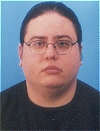
|
QWE2002 Tutorial K1Mr. Ibrahim K. El-Far Model-Based Testing |
|
Model-Based Testing has its roots in hardware testing applications - most notably telephone switches - and recently has spread to a reasonably broad variety of software domains. The wealth of published work portraying case studies in both academic and industrial settings is a sign of growing interest in this style of testing. This presentation discusses model-based testing in terms of finite state machines, one of the more popular software models that are employed in testing. The audience will be exposed to basic skills in theories of graphs and state machines that are useful in understanding and building state models. Various methods to build models varying in their difficulty and in their dependency on tools are presented. Next, the audience will be shown basic test generation techniques with state models. Throughout the tutorial, there will be working examples illustrating the techniques being taught. Finally, there will be some exercises for the audience to acquire an initial hands-on experience with this style of testing.
Ibrahim K. El-Far is a doctoral student in computer science under James A. Whittaker at the Florida Institute of Technology, Melbourne, Florida. His research interests are in investigating software models, test automation and tools, adequacy criteria, and software testing education. In 2000, El-Far received an IBM CAS Fellowship supporting his research in software testing. He has over four years of experience in model-based testing using finite state machines at the Center for Software Engineering Research. He has acted in the capacity of an advisor to model-based testing groups in the Center, and he has supervised the development of experimental state-model testing tools. He has also taught this material in various formats to a variety of students both as part of a normal university course and as part of a program to train students who wish to participate in related industry-sponsored research.